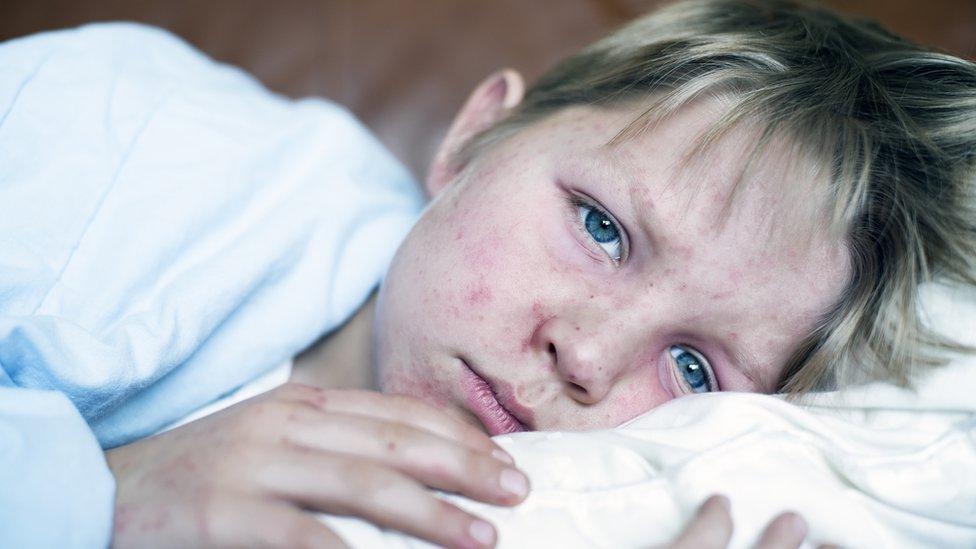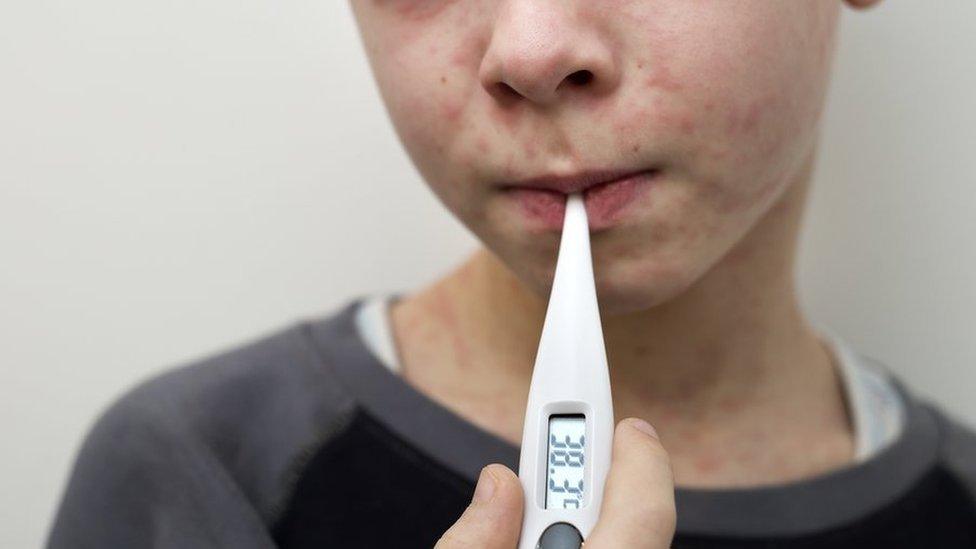Measles: MMR vaccine campaign launched in Northern Ireland
- Published
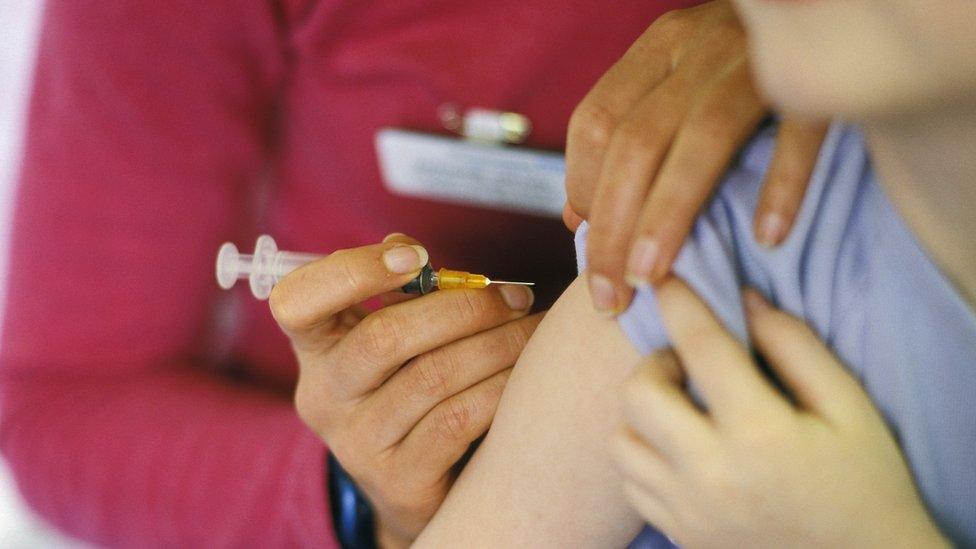
The World Health Organisation recommends 95% of children receive both doses of the MMR vaccine by the age of five
A mumps, measles and rubella (MMR) vaccine catch-up campaign has been launched by Northern Ireland's Public Health Agency (PHA) in an effort to prevent the spread of the diseases.
Measles cases have been rising in parts of England and Europe in recent weeks.
However, no cases have been detected in Northern Ireland since 2017.
The PHA said there had been a decline in vaccine uptake in recent years with Northern Ireland falling behind the recommended 95% vaccination rate.
That is the level that has been recommended by the World Health Organisation (WHO).
Almost 89% of children in Northern Ireland have received their first MMR jab, but fewer return for the second dose with only 85% of children fully vaccinated by five years old.
First and second doses of the MMR jab are now available to anyone aged between 12 months and 25 years old who have not already been vaccinated.
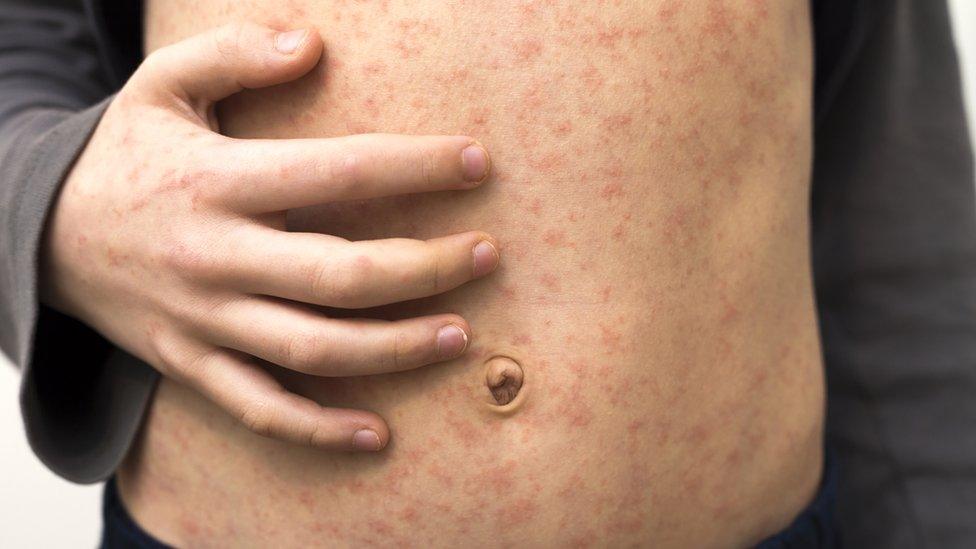
Symptoms of measles can include a high temperature and a blotchy rash
Louise Flanagan, a consultant in public health at the PHA, said measles is one of the world's most contagious diseases.
"The diseases that these vaccines protect against can be life changing and even deadly," she said.
"The vaccine is proven to be safe and has been used since the early 1980s. No parent wants this for their child, especially when these diseases are easily preventable".
Children under five can get the vaccine through their GP practice, while those aged between six and 25 can attend a HSC Trust vaccination clinic. , external
GP Alan Stout, from the British Medical Association, said he and other GPs welcome the MMR vaccine campaign.
Dr Stout said many GPs will never have seen a case of measles.
"Like so many infections it can be straightforward, but it can also become severe with significant complications," he said.
He added that there are "worrying trends UK-wide", as well as increased infection numbers and reduced vaccination numbers.
"This will become a problem in Northern Ireland and it is vital for anyone eligible to be vaccinated and protected," he said.
What is the MMR vaccination?
The MMR vaccination is offered routinely as two separate courses.
The first dose is offered when a child is one, and the second dose when a child is aged three years and four months.
After both MMR doses, 99% of people are protected against measles and rubella, and 88% are protected against mumps.
What are the symptoms of measles?
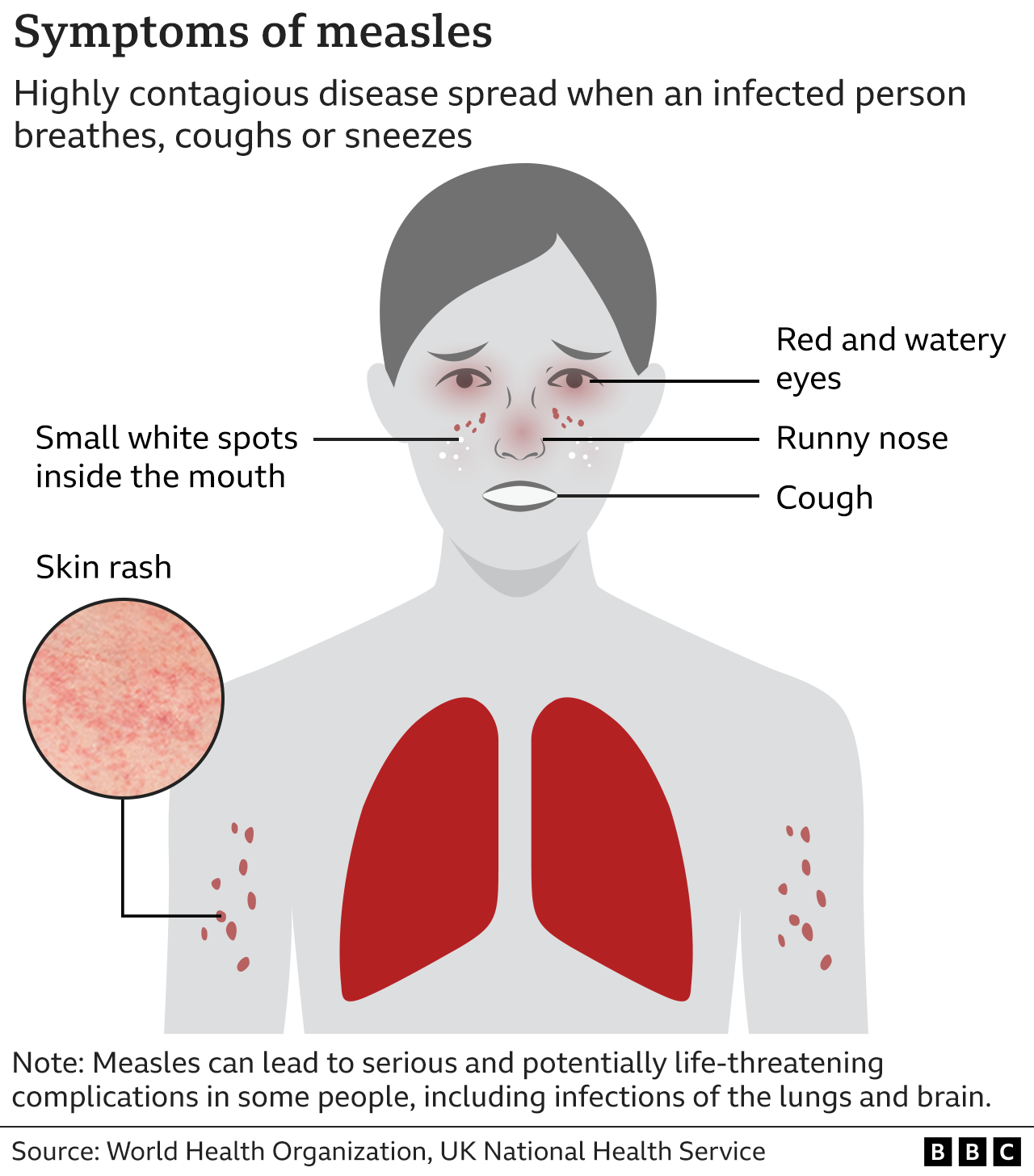
Common symptoms of measles include a high fever, sore and red eyes, coughing, and sneezing.
Small white spots may also appear inside the mouth.
A blotchy red or brown rash usually appears after a few days, typically on the face and behind the ears, before spreading to the rest of the body.
Measles normally clears up within seven to 10 days. However, complications can include pneumonia, meningitis, blindness and seizures.
Babies and young children, pregnant women and those with a weakened immune system are at increased risk.
- Published1 November 2023
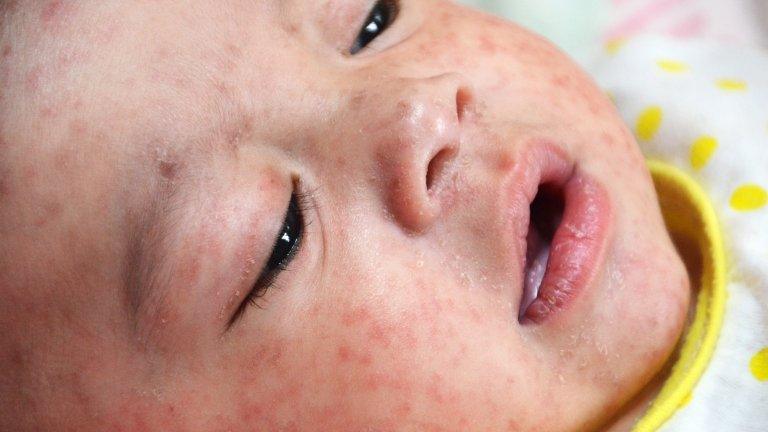
- Published23 January 2024
